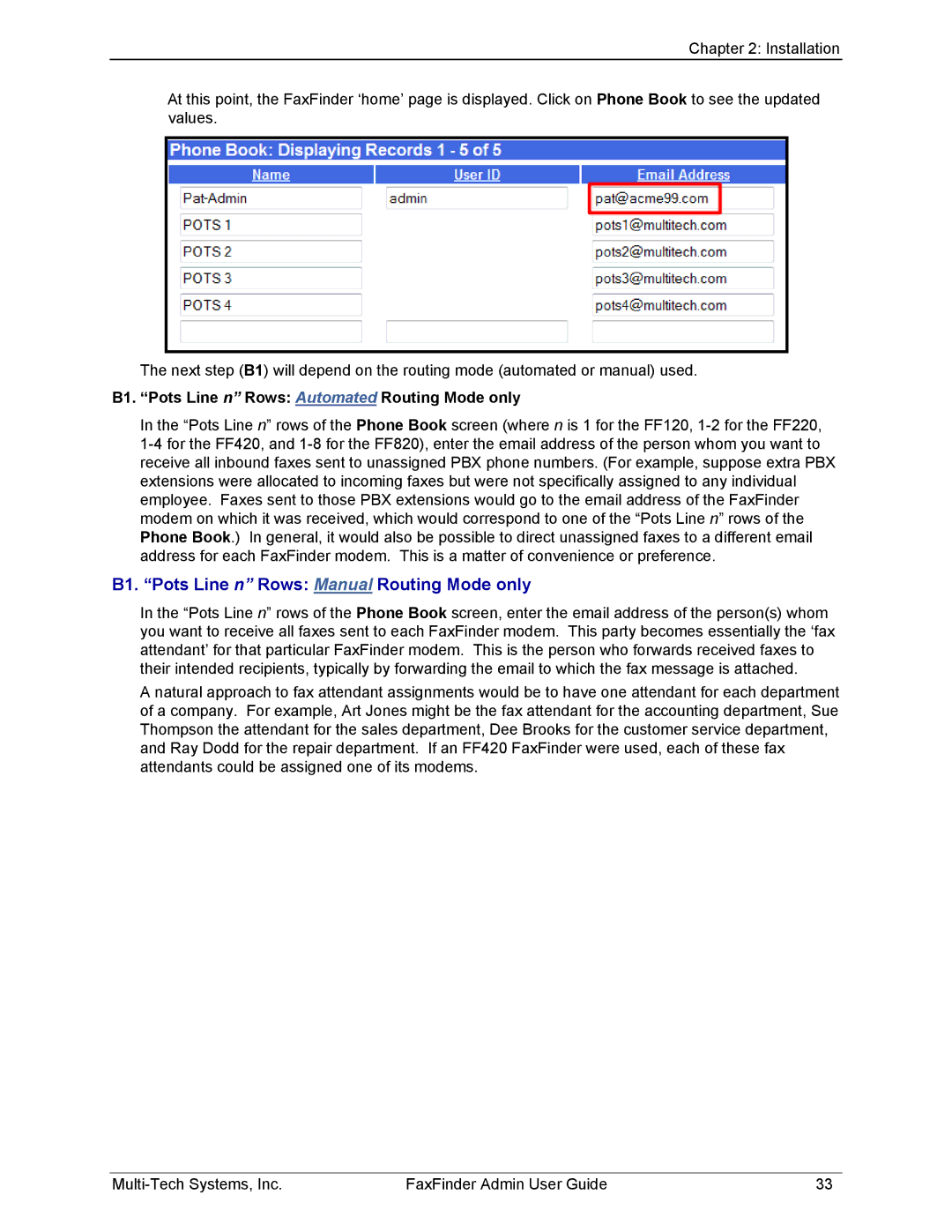
Chapter 2: Installation
At this point, the FaxFinder ‘home’ page is displayed. Click on Phone Book to see the updated values.
The next step (B1) will depend on the routing mode (automated or manual) used.
B1. “Pots Line n” Rows: Automated Routing Mode only
In the “Pots Line n” rows of the Phone Book screen (where n is 1 for the FF120,
B1. “Pots Line n” Rows: Manual Routing Mode only
In the “Pots Line n” rows of the Phone Book screen, enter the email address of the person(s) whom you want to receive all faxes sent to each FaxFinder modem. This party becomes essentially the ‘fax attendant’ for that particular FaxFinder modem. This is the person who forwards received faxes to their intended recipients, typically by forwarding the email to which the fax message is attached.
A natural approach to fax attendant assignments would be to have one attendant for each department of a company. For example, Art Jones might be the fax attendant for the accounting department, Sue Thompson the attendant for the sales department, Dee Brooks for the customer service department, and Ray Dodd for the repair department. If an FF420 FaxFinder were used, each of these fax attendants could be assigned one of its modems.
FaxFinder Admin User Guide | 33 |
